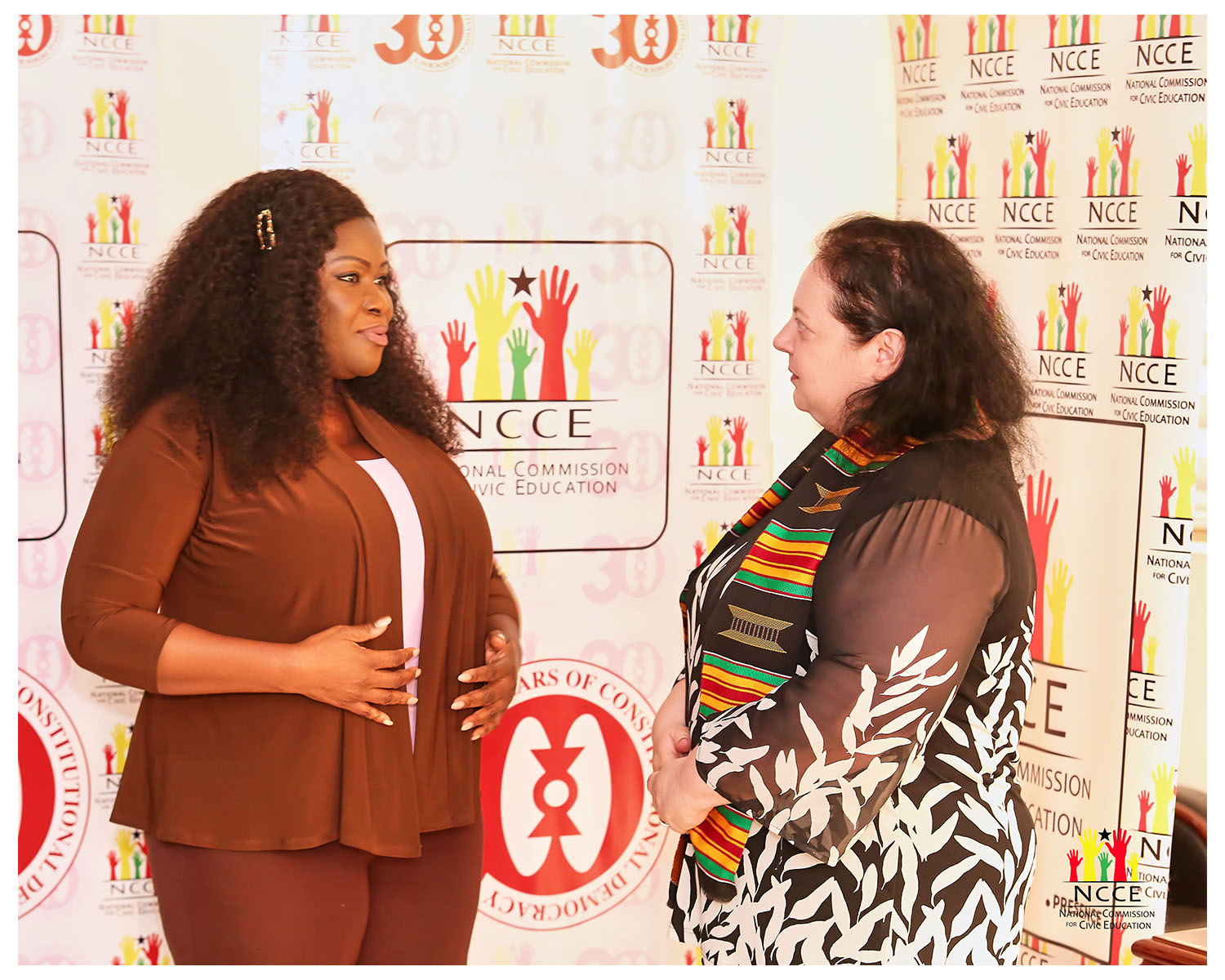The Ambassador of the State of Israel to Ghana, H.E Shlomit Sufa has paid a courtesy call on the Chairman of the National Commission for Civic Education (NCCE) to learn the modus operandi of the Commission as well as discuss collaborations between the two organisations. The meeting took place at the Head Office of the NCCE in Accra.
Chairman of NCCE, Ms. Kathy Addy explained the mandate of the Commission, its organogram, the core values guiding its work, its national presence and civic education delivery methods among others. She stressed that the Commission employs the use of local languages in the communities in which they operate. This allows for a better understanding of civic messages. She opined that the result the NCCE seeks to achieve is to defect positive behavioural change in the minds of citizens.
Ms. Addy also briefed on some pipeline projects the Commission is undertaking which she mentioned include a TV series, a movie and a cartoon series as well as an app to broaden the reach of the Commission’s work and engage other demographics of the populace. She explained the nature of NCCE’s independence and non-partisan position in carrying out its civic roles.
The Ambassador of Israel to Ghana, H.E. Shlomit Sufa proposed that the Commission could collaborate with some Israeli companies such as Mashav for the production of its cartoons and TV series and also to build the capacity of some NCCE staff for future projects.
Ms. Addy said the successful advent of Ghana’s constitutional democracy and its sustenance for the past thirty (30) years without any interruption, can be hinged on the efficient work of the NCCE.
The Director of Programmes (NCCE), Dr. Imurana Mohammed elaborated on the thematic areas and peculiar programmes undertaken in each district office of the Commission, partnerships with donor organisations, international bodies and local collaborations on projects undertaken by the NCCE. He mentioned some of the collaborative works include: the recently launched European Union (EU) project on Preventing and Sustaining Violent Extremism (PCVE) in northern border regions of Ghana, the implementation of the NCCE/EU Accountability, Rule of law and Anti-Corruption Programme (ARAP) programme, collaborations with Civic Society Organisations (CSOs), Faith-based, Community-based organisations and the media.
Dr. Mohammed also spoke on strategies for programme outreaches which adopt the traditional face-to-face interactions, and engagements with members of NCCE’s Civic Education Clubs and identifiable groups. He also added that the Commission now engages the public using social media.
The Director of Research, Gender and Equality, Dr. Henrietta Asante-Sarpong, briefed the Ambassador on the Commission’s research works. She mentioned other research works of the Commission such as Matters of Concern to the Ghanaian Voter, A Combined Research on Assessing the Effectiveness of the Media, Parliament and District Assemblies in Ghana’s Democracy among others. Dr. Asante Sarpong also spoke about the Commission’s recently out doored Gender Policy which seeks to improve gender equality in its operations.
Also present at the meeting were NCCE’s Commission Secretaries, Director Finance; Deputy Director, Human Resource; Deputy Director, Communications and Corporate Affairs and Communication Staff from the Israeli Embassy.

_
Follow us on our social media pages for more stories and posts from the NCCE.
https://www.instagram.com/nccegh1/
https://www.facebook.com/nccegh/


Leave a comment